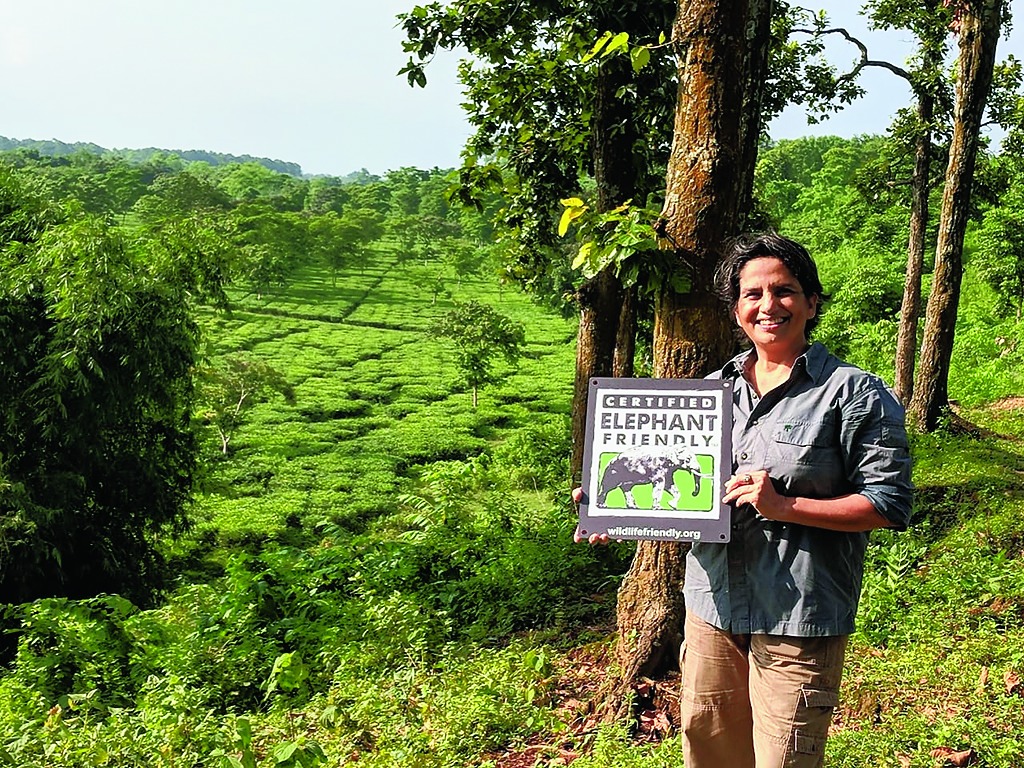
Guwahati: After Tenzing Bodosa's tea farm in Udalguri district of Assam became the first certified elephant-friendly tea farm in the world, a garden from Darjeeling has become the second in the world to get the tag.
Certified elephant-friendly tea is sourced from plantations that meet high standards for protection of elephant habitats and water resources, reducing human-elephant conflict, reducing barriers to elephant movement between habitat areas, elimination of electrocution risks from fencing and power lines, elimination of drainage ditch hazards.
The initiative is the fruit of a partnership between Wildlife Friendly Enterprise Network and the University of Montana, US.
"We started our programme six years before Tenzing did. We have just been recognised later. We would have continued doing the work whether we are recognised or not," Sonia Jabbar, the director of Nuxalbari tea estate in Darjeeling, told The Telegraph.
Nuxalbari tea estate is a 1,200-acre woman-owned and operated tea estate in Darjeeling district of Bengal and is the second in the world to receive this recognition. "Elephants are living bodhisattvas," said Sonia. "We humans can learn a lot from them. They are big and powerful, but choose to remain patient with us despite the fact that we rob them of their forests, tease, harass, and even kill them. It is our duty to protect these gentle giants and we must learn to peacefully co-exist with them on this beautiful earth," she added.
In order to reduce human-elephant conflict the estate's security guards are trained to maintain a 400-metre safe corridor for elephants to pass through unharmed. There are future plans to establish a fund for crop insurance to cover economic losses caused by elephants.
"Elephant-friendly tea certification provides an opportunity for consumers to reward tea growers for changing practices that have negative impacts on elephant populations and enables companies to tell a story of co-existence to consumers," said WFEN executive director and co- founder Julie Stein.
Lisa Mills of University of Montana said, "We have found that when certified elephant-friendly tea products are offered as a choice amongst otherwise similar quality products, consumers prefer knowing their dollars are making a difference for elephants."
Bodosa said, "It is good to see that gardens are coming forward to take measures for protection of elephant habitats. By purchasing elephant-friendly tea, consumers are helping sustain wild elephant populations and to secure their future."











